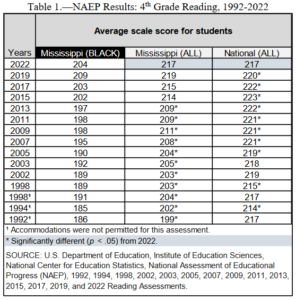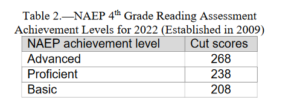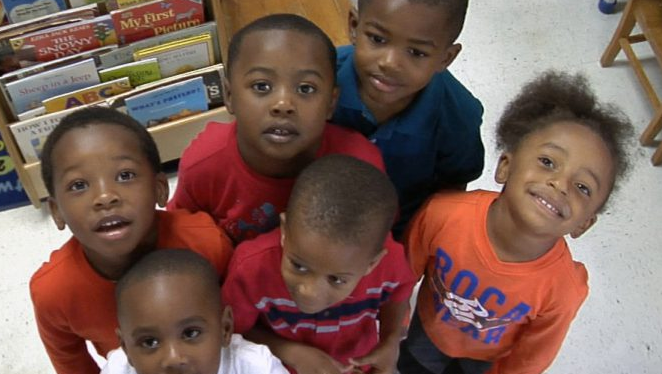Photos\Graphics: Black Economics.org\YouTube Screenshot
We begin this brief essay with Table 1 from the US Department of Education’s National Assessment of Educational Progress (NAEP).

Table 1.—NAEP Results: 4th Grade Reading, 1992-2022 Table 1 tracks average 4th grade reading scores for Black and all Mississippi students and for the nation.
We bring these statistics to your attention because the New York Times (NYT) published an opinion piece by Nicholas Kristof on May 31, 2023, “Mississippi is Offering Lessons for America on Education.” The piece showers praise on Mississippi for its advances in teaching 4th graders to read. Before we analyze the statistics, a brief digression is in order.
Please know that I will spend the rest of my life convincing Black Americans (Afrodescendants) that we are as smart or smarter than White Americans. Over the last year, I realized that many
Black Americans born during the second half of the 20th century just do not want to accept this fact. Many Black Americans of that age, who have participated in higher education, were taught
by White professors (mainly males), who “knew” their subjects well—sometimes very well. These Black American students were also sucked into an educational experience with White student at
the elementary and secondary levels. Unfortunately, these Black students were unduly influenced (overtly or subliminally) to think/believe that Whites simply operate at a higher knowledge level.
Fortunately, this is not so!
Now back to Table 1. Having worked in educational systems in two states (Virginia and Florida) and having visited scores of elementary and secondary schools in numerous states (about half of
the fifty states), I have yet to speak with a teacher, educator, or an administrator (principal or superintendent) who truly understands the NAEP. It stands with no discussion that parents and the
public have little-to-no understanding of how the NAEP works. I realize that people do not comprehend it when I explain it to them. I am convinced that they fear querying me to finally discover what this NAEP “thing” is and about its use.
In the NYT opinion piece, Kristof is your first alert. Having seen Kristof offering his opinions on CNN over the past decade, I recognize him for what he is—and is not. I am not impressed that he
possesses a Harvard degree or that he studied law at Oxford University in the United Kingdom as a Rhodes Scholar. He is not an expert on education. But I am. Kristof is also not an expert on the
NAEP or the NAGB (National Assessment Governing Board). But I am. And, whereas I am not an expert on Mississippi public schools, I have spent enough time in Mississippi and in Jackson,
specifically, to know that Mississippi public schools are in no position to teach America how to teach reading to American 4th graders.
While I have no idea why Kristof decided to heap accolades on Mississippi’s education, my SWAG (scientific wild ass guess) is that his base motivation is politics. Remember, Kristof stepped away
from the NYT earlier when he considered a run for the Oregon Governor’s Mansion.
Kristof is identified as a journalist (a reporter), but he has worked mainly as an opinion writer for the NYT. The opinion piece being analyzed here is misleading and, in places, patently false–violating fundamentals of good journalism and disclosing an absence of “smartness.”
What’s not smart? What’s not true?
First, Kristof asserts that Mississippi elevated itself to the top of the national state rankings on the 2022 NAEP 4th grade reading assessment. When examining this assertion, one recognizes that one
does not need to know what the NAEP scores were in 2022 to realize that reading (and academic performance generally) suffered across all grades and throughout the country due to the COVID-
19 Pandemic. Table 1 shows clearly how Mississippi was already among the lesser lights when home-schooling began in 2020. Let us be clear: Virtual learning is no substitute for in-class instruction and in-person tutelage. Other states had a long way to fall whereas Mississippi was already below par. Kristof’s assertion is not a bald face lie, but a nuanced inaccuracy that is available because most readers are not likely to know what the NAEP is or how it works. Most importantly, Table 1 indicates (by no asterisks (*)) that Mississippi’s 2022 NAEP 4th grade reading assessment score is not statistically different from scores for the previous three testing years at the five percent level of significance.

other words, after adjusting Mississippi’s reading assessment scores for the disproportionate number of lower socioeconomic families including Black Americans in the state, it can be reported
that Mississippi is among the top performing states in 2022. Also (ignoring for a moment our earlier point that Mississippi’s 2022 score is not statistically different from the previous three
testing years), the opinion piece neglects to inform readers that Mississippi achieved an average score of 219 in 2019 before the pandemic and a 217 score in 2022. Do we now celebrate performance declines?









